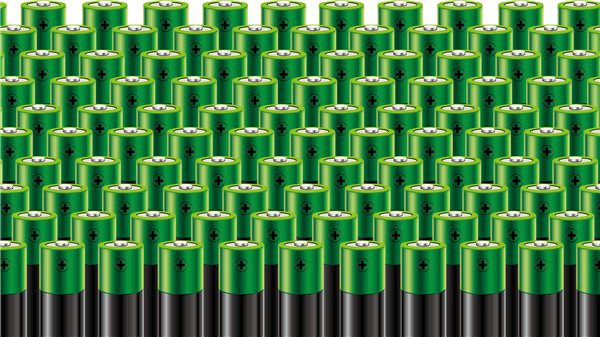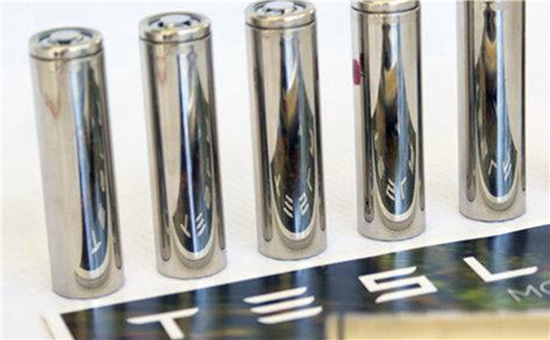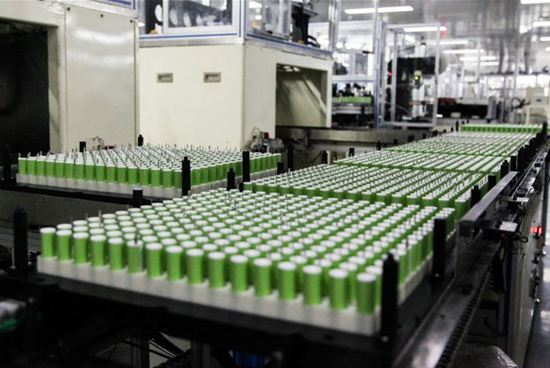Are lithium-ion Batteries Considered Hazardous Waste?
May 21, 2019 Pageview:2102
Based on the statements issued by the government of the United States, lithium ion batteries are not environmentally hazardous.

Generally, the batteries are grouped by the federal government as non-hazardous waste, and the batteries are safe for any form of disposal in the regular municipal stream of waste.
However, other types of batteries have toxic metals in them like cadmium. The metals found in lithium-ion batteries are;
· Iron
· Nickel
· Cobalt and;
· Copper
These metals have been thought of to be safe for issues of landfills or even incinerators. Amazingly, the lithium-ion battery comprises an ionic type of lithium, but it does not have any lithium metal.
Meanwhile, all these does not mean anyone can as well dump over two million batteries yearly into any waste stream. For Europeans, their view of landfilling lithium-ion batteries is quite dim.
For them, products like lithium batteries have a recycling worth and throwing over two billion batteries yearly is simply being wasteful especially at a time when the United States is running out of space mostly with their landfills.
There have been calculations that between eight thousand and nine thousand tons of cobalt are being utilized in the manufacturing of lithium batteries every year. Each and every one of the batteries consists of roughly ten to thirteen percent of cobalt by its weight.
Based on lots of sectors of environmental security, the EU; European Union is basically far ahead of the United States as they have gone on to pass a law concerning battery recycling.
The law requires every vendor to forge ahead to reclaim recycling a minimum of twenty-five percent of the batteries they produce and trade. This also includes lithium-ion batteries.
Are lithium batteries Hazardous?
The prominent batteries based on lithium consists of features such as being;
· Lightweight
· Strong
· Inexpensive, and;
· Safer for the environment when compared to the other alternatives that are available
Meanwhile, lithium batteries are capable of producing huge amounts of energy, and there can be explosion and fire risks linked to the batteries.
The storage of huge volumes of energy be it in big rechargeable batteries or in small batteries that are disposable, can be downright dangerous. Malfunctions in batteries result in them overheating or possibly thermal runaways.
All these are what may likely result in explosion, gas leaks, or fire. Also, lithium batteries can head straight into thermal runaway whenever they get in contact with external heat sources like fire, for example.
As a result of these safety concerns, lithium batteries are highly considered to be hazardous materials or basically dangerous goods. So, when it is being shipped to a country, the shippers must adhere strictly to the requirements of regulations.

lithium-ion battery Disposal Regulation
On a general note, the United States EPA; Environmental Protection Agency, does not regulate battery disposal of little quantity. Those of larger quantities are strictly regulated under the global rules of hazardous waste regulations.
For lithium batteries, they are not disposed of currently after being used. Though there are no federal regulations for the disposal of lithium-ion batteries, however, each state or even localities can create their very own guidelines for the disposal of the batteries.
To dispose of your lithium-ion battery, it is advisable to contact the disposal guidelines of the state you reside in just in case they have their guidelines every citizen must adhere to.
Meanwhile, the batteries that are being used commercially should be left in a dischargeable state before their final disposal.
Subsequently, a major lithium cell is said to be discharged immediately its voltage gets to two volts or lesser than two volts under a current that is C/100. C is the capacity rate of the battery in ampere hours.
Once it is swiftly discharged, huge quantities of lithium-ion batteries can be safely shipped to any hazardous waste facility to be burnt with an incinerator. However, there are very few companies that engage in recycling lithium-ion batteries.
Moreover, the incineration of lithium batteries and cells is not permitted to be carried out by its consumers. Incineration must be properly executed at a permitted facility that can take issues of waste.
In the same vein, the laws and regulations that pertain to the disposal and recycling of lithium batteries differ from one country to the other. It also differs from one state and local government to the other state and local government.
As stated earlier, every citizen must check out the regulations and laws guiding their states when they want to dispose of their lithium-ion batteries.

Recycle Rechargeable Batteries
Basically, the recycling of battery is a recycling activity that practically focuses on decreasing the number of batteries that are regularly disposed of as municipal sturdy waste.
Furthermore, batteries consist of some heavy metals as well as toxic chemicals. So, disposing them via the exact same process used in disposing of common trash has raised lots of concerns over the contamination of the soil and pollution of water
Most of the materials in rechargeable batteries are basically metal, plastic, and lead. This makes them recyclable. These batteries can be recycled via;
· Take back programs
· Drop off programs, and;
· Mail-in programs
However, so many states prohibit the throwing of batteries in the trash, and this means that recycling batteries are the only available alternative left.
To Wrap It Up
One of the reasons as to why lots of lithium-ion batteries are not being recycled ultimately comes down to easy economics. This implies that the scrap worth of batteries does not sum up to much. Highest $100 per ton.
But, the collecting cost, sorting and shipping used lithium batteries to a recycler actually surpasses the scrap value, so, the batteries always tend to be thrown far away.
The sad fact remains that the market actually does not take note of the social price of disposal and it does not also factor in the idea that recycling metals like cobalt have a much more reduced environmental and economic cost than the mining of raw materials.
- Prev Article: How Many Cells Are In A Lithium Battery?
- Next Article: How to tell if an 18650 battery is bad?
Leave Message
Hottest Categories
-
Hottest Industry News
-
Latest Industry News









